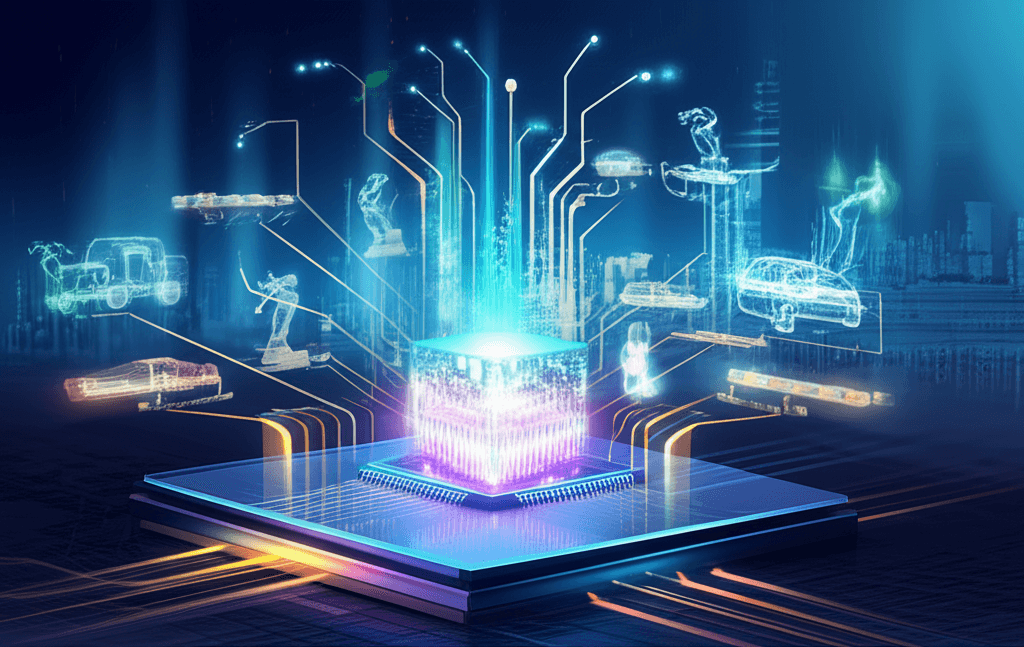Germany Unleashes NVIDIA AI Cloud to Revolutionize Manufacturing
Germany's landmark NVIDIA partnership establishes Europe's first industrial AI cloud, poised to revolutionize manufacturing and secure tech sovereignty.
June 13, 2025

Germany is making a significant move to secure a leading position in Europe's artificial intelligence race through a landmark partnership with U.S. tech giant NVIDIA. The collaboration will establish the continent's first industrial AI cloud, a project poised to supercharge Germany's renowned manufacturing sector and bolster its ambitions of technological sovereignty. This initiative, described as Germany's single largest AI deployment, signals a clear intent to move from AI adoption to AI creation, leveraging the nation's deep engineering heritage to compete on the global stage.
At the heart of the initiative is the creation of a powerful "AI factory" located in Germany and operated by Deutsche Telekom.[1] This facility will be equipped with 10,000 of NVIDIA's cutting-edge GPUs, including the powerful Blackwell architecture, providing the immense computational power needed for demanding industrial applications.[2][1] The goal is to accelerate every facet of manufacturing, from design, engineering, and simulation to the operation of factory digital twins and robotics.[2] NVIDIA's CEO, Jensen Huang, has emphasized the transformative nature of this project, stating that in the AI era, every manufacturer requires two factories: one for physical production and another for creating the intelligence to power it.[2][1] This venture directly addresses that need, providing a platform for Germany’s industrial leaders to pioneer "simulation-first, AI-driven manufacturing."[2][1] The cloud infrastructure, slated for completion by 2026 at the latest, will be built on NVIDIA's Omniverse Blueprint for AI factory design and will run a suite of NVIDIA software, including CUDA-X libraries and RTX-accelerated workloads.[2][3][4]
This major investment is strategically aimed at Germany's economic core: its powerful automotive industry and the vast network of small and medium-sized enterprises known as the Mittelstand.[5] The Mittelstand accounts for 99% of all German enterprises and over half of the country's economic output, making their adoption of AI critical for national competitiveness.[5][6] The AI cloud is designed to lower the barrier to entry for these smaller companies, giving them access to state-of-the-art infrastructure, software, and training that might otherwise be out of reach.[5] Major German automotive players like BMW Group, Mercedes-Benz, and Schaeffler are already leveraging NVIDIA technologies to create digital twins of their factories, optimize production lines, and accelerate simulations, reporting significant speedups in processes like aerodynamics testing.[2][7][8][9] The new industrial cloud will further democratize these capabilities, fostering a broad ecosystem that includes startups, academia, and major enterprises.[10][1] The collaboration also extends to upskilling the workforce through NVIDIA's Deep Learning Institute, ensuring that Germany has the talent to match its new technological infrastructure.[5][11]
The partnership is a cornerstone of Germany's broader national AI strategy, which seeks to establish the nation as a global leader in the development and application of artificial intelligence.[12][13] The German government has voiced strong support for the initiative, with officials highlighting the importance of strategic AI infrastructure for the country's innovative strength and technological sovereignty.[14][15][11] This project is seen as complementary to wider European Union efforts, including a plan to build an "AI gigafactory" with 100,000 GPUs by 2027.[1] The focus on "sovereign AI" is a recurring theme, reflecting a desire across Europe to reduce dependency on foreign technology and ensure that data is processed according to European standards and values.[10][16][4] By building this capacity within its borders, Germany aims to create a secure and trusted environment for its industries to innovate. This move is part of a larger trend of significant AI investment in Germany, with Microsoft and Apple also recently announcing multi-billion euro investments in the country's tech infrastructure.[12]
While Europe has been perceived as lagging behind the U.S. and China in the AI race, this German-NVIDIA alliance represents a significant step to close the gap, particularly in the industrial domain where Germany has historically excelled.[17][18] The initiative is part of a broader European push, with NVIDIA announcing similar, albeit distinct, infrastructure projects and technology center expansions in the U.K., France, Italy, Spain, and Finland.[19][20][21] This suggests a continental awakening to the critical importance of AI infrastructure.[16] However, challenges remain, including a "brain drain" of AI talent to the U.S. and a funding gap for growth-stage startups compared to American counterparts.[22][23] The success of this industrial AI cloud will be a critical test of whether Europe can translate its strengths in research and industrial application into a globally competitive AI ecosystem.[24] By focusing on its manufacturing prowess, Germany is not just participating in the AI race; it is aiming to define the future of how artificial intelligence reshapes the physical world.
Sources
[2]
[4]
[5]
[6]
[10]
[12]
[16]
[17]
[18]
[20]
[21]
[22]
[23]
[24]